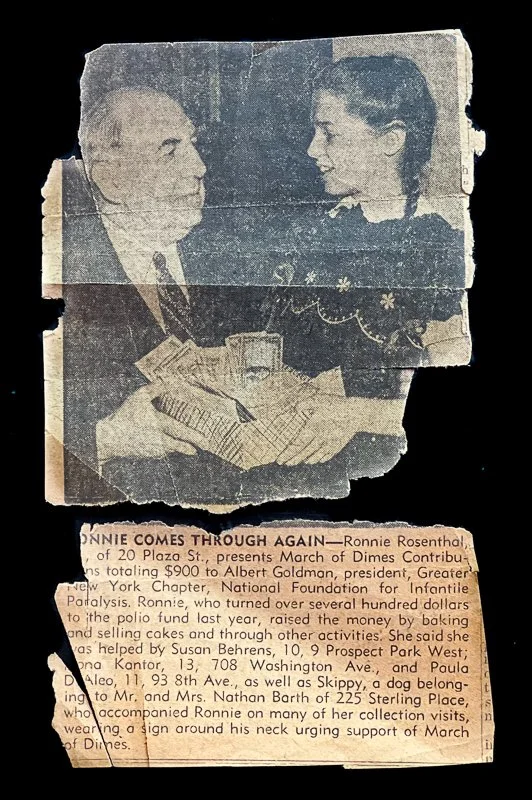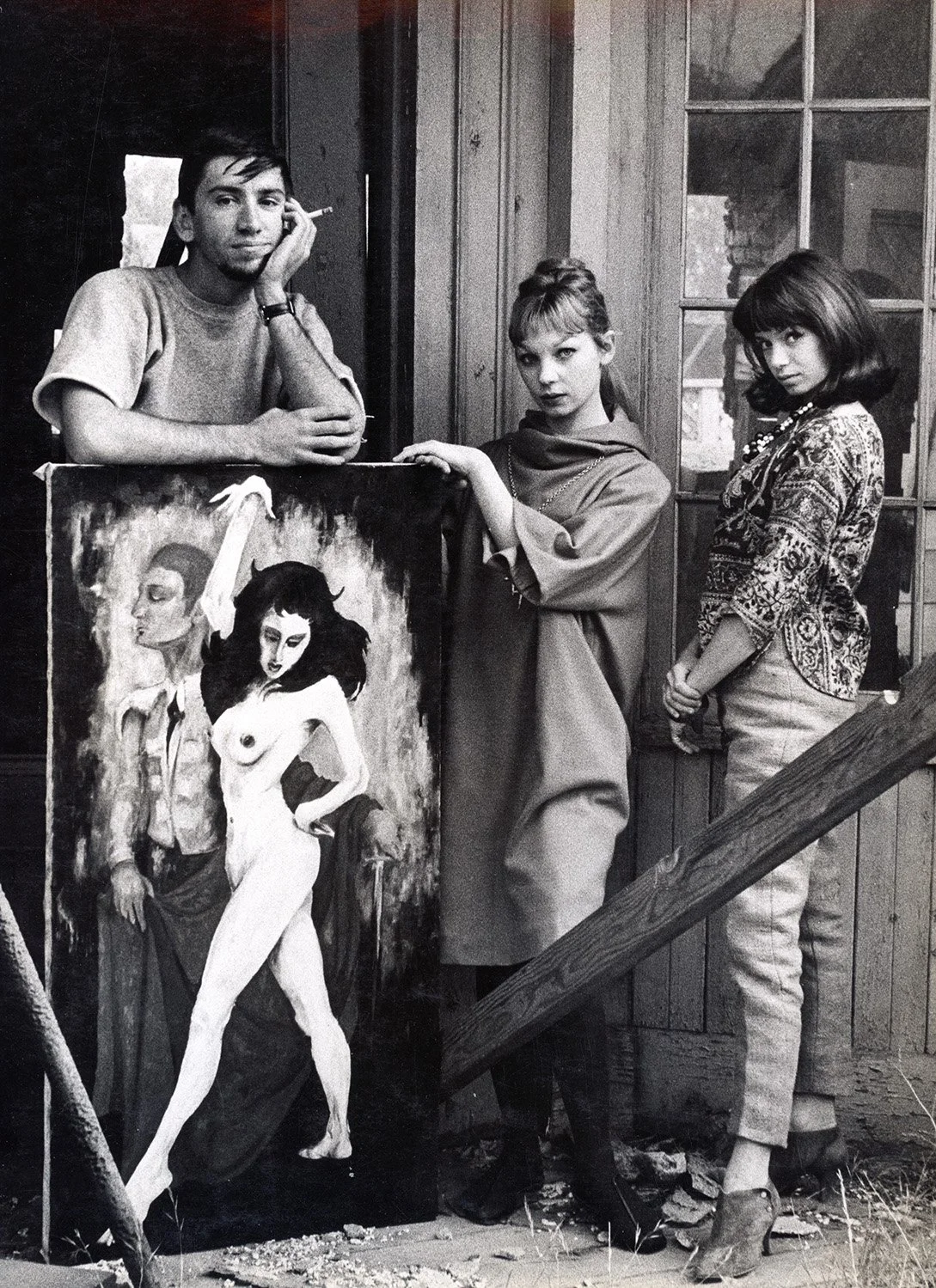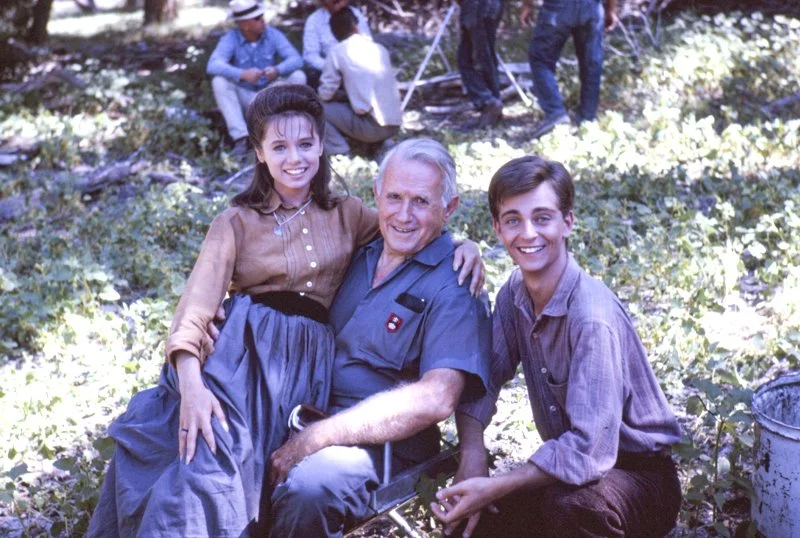Born on August 9, 1939, Ronnie Rosenthal grew up in Brooklyn and Manhattan, the daughter of Gertrude and Harry Rosenthal. When she was five, her father gave her a camera and a lifelong passion was ignited. Her father also enjoyed taking home movies, which he and Ronnie would then edit and piece together with title cards.
At ten years old, Ronnie made national headlines for becoming a champion fundraiser for the March of Dimes, an early example of Ronnie’s drive, charisma, and ability to rally people.
Below is an image of the New York Times article written about Ronnie’s efforts on February 8, 1950 followed by coverage of her fundraising the following year when she partinered with some girlfriends and Skippy the dog.
Where It Begins
That same energy carried into Ronnie’s teens—she skipped the 3rd grade and ended up graduating high school at fifteen, then attended Boston University, studying Theatre Arts at the School of Fine Arts.
In her early years, Ronnie pursued acting, appearing in television shows and films throughout the late 1950s and early '60s. She showcased a natural presence onscreen and worked steadily in the business, earning credits on a variety of network programs such as The Fugitive, The Untouchables, My Three Sons, and even The Munsters!
Bob Denver (left), one of the stars of the CBS sitcom Dobie Gillis, hangs out with an unknown crew member and Ronnie (far right).
Ronnie (above) poses for a still shot during her guest role on Dobie Gillis in 1959, which also included actress Tuesday Weld.
Ronnie earned a part in the 1961 feature film Come September, which starred Rock Hudson, Gina Lollobridgida, Sandra Dee, and Bobby Darin.
As usual, Ronnie had her camera always in hand, snapping this creative and silly photo of cast member - and future Academy Award winner - Joel Grey.
In one scene, Ronnie’s character Sparrow dances with Grey’s character Beagle.
Ronnie sits on set with Vince Edwards, star of Ben Casey, which ran from 1961-1966. This was the hit series’ premier season and Ronnie was cast as Abilene Hopewell in the 26th episode titled “Among Others, a Girl Named Abilene.”
Ronnie in 1962 on the set of Death Valley Days, one of the first anthology series on television.
In 1963, when not in front of the camera playing her character “Cally,” Ronnie snapped pictures on the set of Wide Country, starring Andrew Pine and Earl Holliman.












